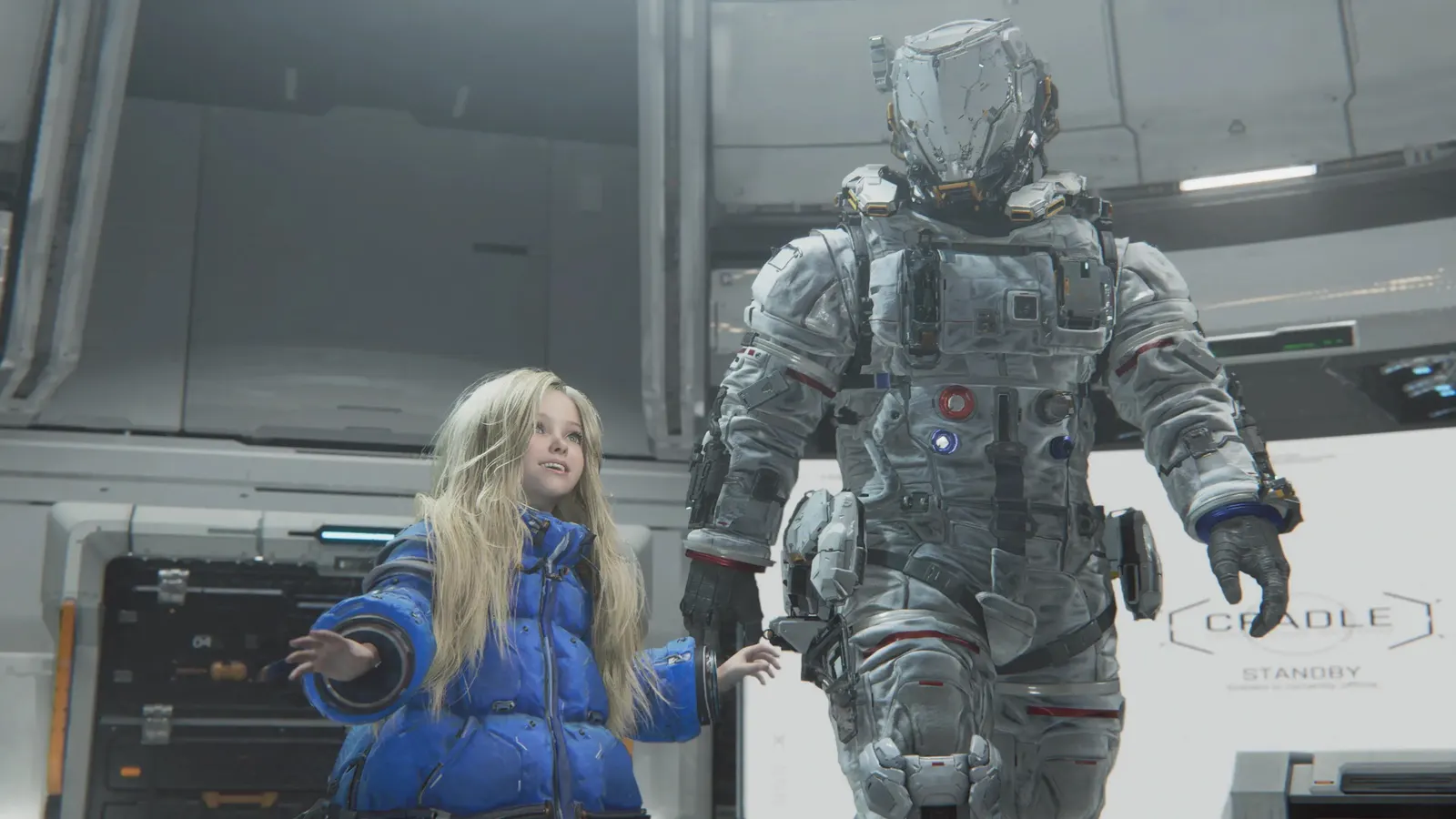By Contributor,Ollie Barder
Copyright forbes

Pragmata’ will be released sometime next year.
One of the few games that has had an overly long development cycle is Pragmata, but the result of all that extra time has produced a very interesting game.
The word “pragmata” is the plural of “pragma” from Ancient Greek. The most common translation is that of things, but it can also mean deeds, or acts, and in a philosophical context, transcendent realities. It’s also the basis for the English word, pragmatic.
In this instance, a Pragmata is the name given to a type of android, which in this game is a small blonde-haired girl called Diana. The game’s premise has Hugh Williams, the character in the funky spacesuit, investigating problems at a lunar base. Separated from his team and injured, this android finds Hugh, and he gives her the name Diana.
Hugh and Diana form a unit, where Hugh uses guns to shoot stuff, and his robust body and spacesuit to explore the often quite dangerous environment. Whereas Diana, on the other hand, uses her hacking abilities to interact with the game world, such as unlocking doors and the like, as well as modifying how Hugh’s attacks affect enemies.
It’s this latter point that is at the heart of Pragmata’s gameplay. When you encounter an enemy, Diana brings up a display of icons that you move over by pressing the appropriate face button. This can either increase Hugh’s attack power or weaken the shielding of an enemy, among many other things.
On paper, this sounds awful, but it proves that the bulk of game design relies on implementation, and in this instance, the above setup works really well.
The best point of reference I can give is that this feels more like Dead Space, without the horror and jump scares, coupled with an involved backend upgrade setup, where Hugh and Diana boost their respective abilities and armaments (shown in the trailer below).
I played through an early section of the game and was impressed by how the hacking setup worked, coupled with the obviously slower pacing of the combat. The level design was also nicely involved and had some good verticality to it, and had some nice secrets tucked away if you were agile and dexterous enough.
The demo ended with a boss fight against a chunky mecha, and the pacing and complexity of that also worked really well.
In addition to all that, the game looks genuinely gorgeous and really shows off what the PlayStation 5 can do. Not to mention that the game appears to have an engaging, if somewhat mysterious, story.
Considering how long this game has been in development, after playing the demo, I can kind of see why. Much of Pragmata’s appeal, which is considerable, is down to its unique tactile game design, and that takes a lot of iteration to get right.
In short, Pragmata looks to be a genuinely engaging and fascinating game, and one I am now definitely looking forward to once it is eventually released next year.
Follow me on X, Facebook and YouTube. I also manage Mecha Damashii and am currently featured in the Giant Robots exhibition currently touring Japan.
Editorial StandardsReprints & Permissions



